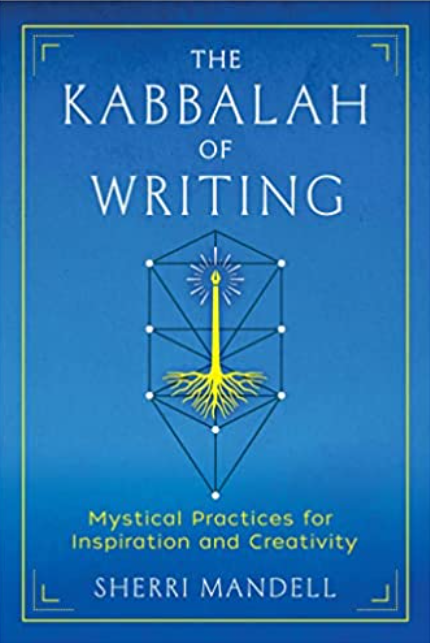
The Kabbalah of Writing- Mystical Practices for Inspiration and Creativity by Sherri Mandell
“Take the words and experiences and knowledge that God has granted you, your truth, and write your memoir. Be bold, creative, patient, free, and focused as you craft your life into art. Your readers are waiting for you.”
What do you tend to write on a daily basis? Shopping lists? Calendar appointments? Notes to yourself to remember to write/take with you/not lose the shopping list or appointment date? Me too. I have a notebook I use to write those lists, which is a chronicle of my life. Sherri Mandell has a much better idea: “Writing is a means of appreciating the world, allowing us to pay attention and concentrate so that we notice and record the unique. Sometimes fleeting truths that the divine sends to each of us, our stories.”
Sherri Mandell had a master’s degree in Creative Writing from Cornell and was a secular Jew who moved to Israel, married a “religious man,” started to keep Shabbat, and, in teaching that same creative writing course in Jerusalem, started to think about writing in a “spiritual way.” She learned about the Kabbalah and the ten sefirot, “channels or spheres that comprise the elemental spiritual structure underlying, infusing, and animating the world- the divine design.” Using the characteristics of these ten sefirot, from Will (Keter) and Inspiration (Chochmah) to Creativity (Yesod) and Rulership (Malchut), she teaches the reader to channel those esoteric characteristics into the written word.
“By recording our experiences into a story, we give our pain a form, attempting to tame the traumatic experience. Even if that control is illusory, we find coherence in the chaos.” Sherri Mandell lost her son Koby, of blessed memory, to terrorists; she described her attempts to cope with that tragedy- ironically and heroically as a pastoral counselor helping others in pain- in her book Reaching for Comfort. Now she counsels in a different way, urging the reader to engage in their own creative writing process to make sense of the world, employing discipline, kindness, metaphors, and images, teaching narrative structure, quoting noted Rabbis and contemporary authors- Nora Ephron, bemoaning her wrinkled neck, is a favorite of mine- parsing language and finally, simply finding time to write. As an incentive to actually take pen in hand, or fingers to computer keys, she includes writing exercises within and at the end of each chapter: “Write an essay beginning: ‘Home is where I…’ Return to that phrase numerous times during the essay.”
My husband and I took a walk by the ocean recently on a cold, stormy day. The waves were rolling, cresting, swelling and, um, waving. Riding along on those huge crashing waves were two small families of ducks- mother ducks with several tiny ducklings in tow. We watched in awe as those ducks, seemingly oblivious to the stormy seas, confidently bobbed up and down with the rhythm of the water in that vast, cold ocean. They had confidence in their innate skill in navigating their environment; they were two very small families paddling along amongst the gray, swirling salty water. Watching those confident ducks navigate the water gave me a vision of me navigating life- one of god’s children paddling along, sometimes in tranquil, aqua water, other times in that stormy sea, always with Hashem/god watching over me to make sure I’m safe.
Before I write my next shopping list (orange juice, milk, and, um, brownies), I’ll take that pen, open the notebook, channel Sherri Mandell, her creativity and suggestions, and indulge in crafting my life into art…even if I’m the only one reading that page!
Randy Rubinstein lives in Sharon, Massachusetts
